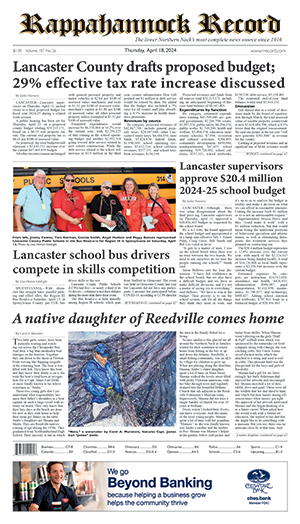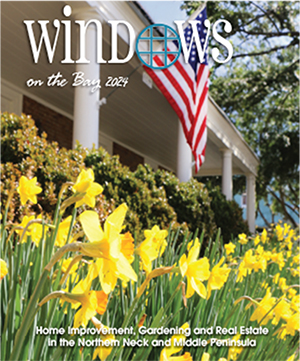by Rev. John H. Farmer
Visit the Irvington Baptist Church website
Inspired by our black heritage
I was reminded that years ago friends Tom and Cherie Fowler had a re-gifting party following a busy Christmas season. I out-bid Deacon Travis Tomlinson for a set of Mahalia Jackson CDs. Wow; they’ve blessed this old preacher’s heart.
When I need an old inspirational favorite, the late Mahalia Jackson (1911-1972) provides just the medicine a faithful heart needs. Let me share or reacquaint you with one of these blessings, “Rusty Old Halo,” as arranged by Bob Merrill:
“I know a man rich as a king, still he won’t give his neighbors a thing. If he gets to heaven someday, I guess he’ll be surprised if he only gets —
A rusty old halo, skinny white cloud, second-hand wings full of patches.
Rusty old halo, skinny white cloud, a robe so wooly that it scratches.
Some people that have big shiny cars, swimming pools, fur coats and diamonds in jars, real silver gates, real golden doors. They get to heaven and trade them all for —
A rusty old halo, skinny white cloud, second-hand wings full of patches.
Rusty old halo, skinny white cloud, a robe so wooly that it scratches.
While you’re on earth you should shine like a star, brighten up the corner wherever you are. Doing each day the best you can do, that way you’re sure they’ll never hand you—
A rusty old halo, skinny white cloud, second-hand wings full of patches.
Rusty old halo, skinny white cloud, a robe so wooly that it scratches.”
That song was recorded by any number of other stars—yet none, for me, hold such power. Mahalia knew the author who inspired another to write it.
Black Christian writers like James Weldon Johnson (1871-1938) and his brother J. Rosamond (1873-1954) enriched our cultural hymnology, especially in the powerful, “Lift Every Voice and Sing.” James W. preserved for us the power of early American black preachers in his little 1927 collection God’s Trombones: Seven Negro Sermons in Verse.
That future teacher, poet, songwriter and civil rights activist was the son of a headwaiter and the first female black public school teacher in Florida, both of whom had roots in Nassau, Bahamas. His parents encouraged Johnson’s interests in reading and music. Three years after the Carter’s Creek Meeting House (later Irvington Baptist Church) was established, Johnson earned his degree from Atlanta University (1894) and taught for two summers in rural Hampton, Georgia. There he first experienced life among poor African Americans, from which he had been largely sheltered during his middle-class upbringing in Jacksonville.
Eventually he became the principal of the Jacksonville school where his mother had taught, improving education there by adding ninth and tenth grades. In 1895 he founded a newspaper, The Daily American. While still serving as a public school principal, Johnson studied law and became the first African American to pass the bar exam in Florida.
When Johnson’s younger brother, John Rosamond Johnson (1873-1954), graduated from the New England Conservatory of Music, 1897, they began collaborating in musical theater.
Though he’d dabbled with popular music, Johnson became dissatisfied with racial stereotypes propagated and in 1903, began taking graduate courses at Columbia University to expand his literary horizons. In 1906, he was appointed to a consulship at Puerto Cabello, Venezuela. That position allowed him time to write poetry and work on a novel. In 1909, he married Grace Nail, the daughter of a prosperous real estate developer from New York.
“Unable to secure a more desirable diplomatic post, Johnson resigned his consulship in 1913 and returned to the U.S.” He moved back to New York to become an editorial writer for the New York Age, in which capacity he was an ardent champion for equal rights. In 1917 he published his first collection of poetry, Fifty Years and Other Poems, the title poem having received considerable praise when it had first appeared in The New York Times.
In 1916 Johnson was appointed field secretary for the NAACP. In 1920 he became its General Secretary, resigning in 1930. “During his final years he wrote a history of black life in New York that focused on Harlem Renaissance. His last book Negro Americans, What Now? (1934), argued for integration as the only viable solution to America’s racial problems.” Johnson died in Maine on June 26, 1938, when his car was struck by a train. Two thousand mourners attended his funeral in Harlem.
Black TV, radio, revivalist and concert star Ethel Waters (1896 –1977) left many an inspiring blessing for all of us to absorb. Her signature piece has to be, “His Eye is on the Sparrow.”
That tall lanky, gospel, velvet-voiced singer, Tom Dorsey (1899 –1993, headquartered in Chicago) rose above human heights when he penned and sang, “Precious Lord, Hold my Hand.”
These aforementioned saints as well as other inspirational black voices, many memorable black tunes, have united, to give this pastor encouragement in difficult times.
It is important that we study our Bibles to learning the truth of God. It is important that we expose ourselves to the inspiration of the Holy Spirit. It is just as important that we are blessed and challenged by persons whose faith has given them a voice of God.











